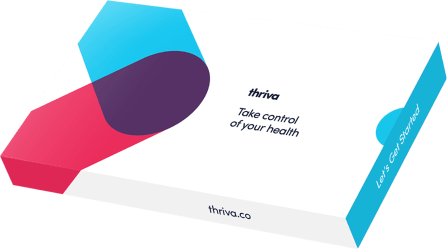Omega-3 fatty acids are essential to your health. You can get omega-3s from your diet, mainly from oily fish. But if you’re vegetarian, vegan or don’t eat a lot of fish you might need to take an omega-3 supplement. There are lots of supplements to choose from, but some are better than others.
Deciding whether to take an omega-3 supplement
Omega-3 fatty acids are a type of essential unsaturated fat that you must get from food or a supplement. They’re important for brain development, cell structure and producing hormones. They also might help to reduce inflammation in your body.
If you’re vegan, vegetarian or don’t eat a lot of fish you might need to take an omega-3 supplement. There are plant sources of omega-3s, like flaxseed, chia seeds, and walnuts, but your body finds it harder to use this type of omega-3.
You can understand if your supplement is having an effect by using an at-home omega-3 and 6 blood test.
Tips for choosing the best omega-3 supplement
There are lots of omega-3 supplements to choose from. Natural fish oil, krill oil, mammalian oil, green-lipped mussel oil and algal oil (vegan) are usually all good options. But some types and brands are better than others so there are a few things to consider when choosing.
Types of omega-3s
The three most important types of omega-3s are:
- Docosahexaenoic acid (DHA)
- Eicosapentaenoic acid (EPA)
- Alpha-linoleic acid (ALA)
Read the label carefully and make sure your supplement contains both EPA and DHA. Some vegetarian supplements only contain ALA which your body can’t use as well.
Forms of omega-3s
Omega-3s in supplements can come in the form of free fatty acids (FFA), natural or reformed triglycerides (TG), phospholipids (PLs) and ethyl esters (EE). Try to avoid supplements that contain omega-3s in the form of ethyl esters, like processed fish oil, as these are harder for your body to absorb.
Amount of omega-3s
There’s currently no recommended daily allowance (RDA) for omega-3s. One or two portions of fish a week has about 450mg of EPA and DHA. So a supplement with about this amount is usually enough.
Quality of omega-3 supplements
The high-fat content in omega-3s makes them prone to oxidation — meaning they’ll go off. Always make sure to check the date on the bottle and avoid buying them in bulk (you have about 90 days to use a bottle once opened). Also try to find an omega-3 supplement that contains an antioxidant like vitamin E, this helps to stop it from going off. If you’re not sure, open a capsule and if it smells bad throw it out.
Vegan omega-3 supplements
For vegans and vegetarians, algal oil is a good alternative to fish oils. This plant source of EPA and DHA comes from microalgae (seaweed) and is also a good source of the mineral iodine.
Heavy metals and fish oil supplements
Some people worry that fish oil supplements are high in heavy metals like mercury (which can cause serious health problems). However, the amount of mercury in supplements is negligible. Look out for fish oil supplements with the International Fish Oil Standards (IFOS) label — these have been tested to make sure there are no harmful levels of contaminants in them.
Side effects of omega-3 supplements
Any side effects from omega-3 supplements are usually mild. Heartburn, burping, bloating and diarrhoea might affect some people. Sometimes starting with a lower dose and increasing it gradually can help.
Allergies
It’s still unclear whether people with allergies to fish can take a fish oil supplement. If you’re allergic to fish a vegan omega-3 supplement, like algal oil, might be the best option.
Interactions with medications
If you have a bleeding disorder or take blood-thinning medication, like warfarin, talk to your doctor before taking an omega-3 supplement. High doses of omega-3s have been linked to an increased risk of bleeding.
















